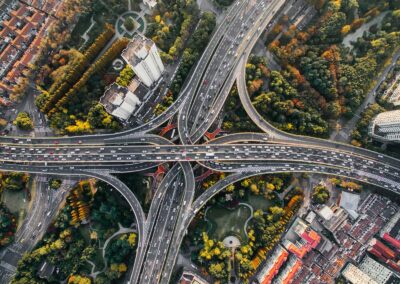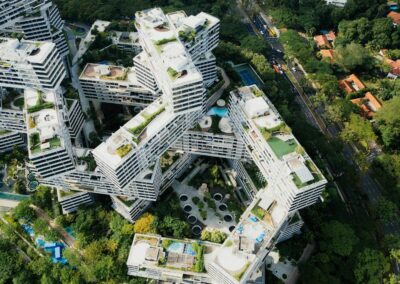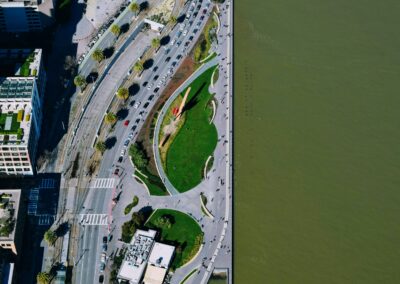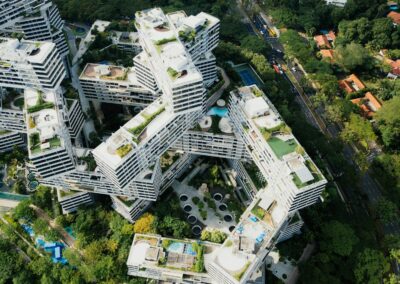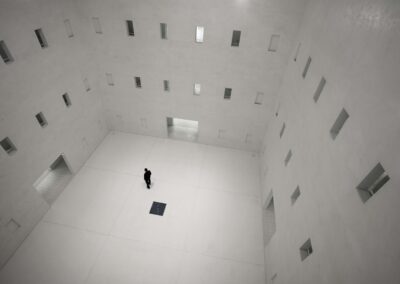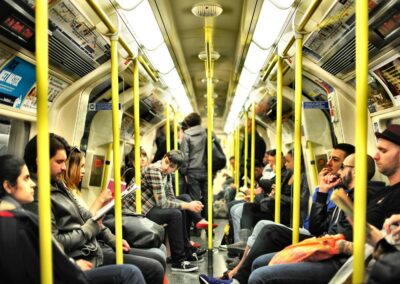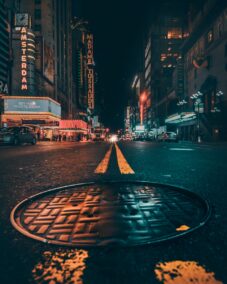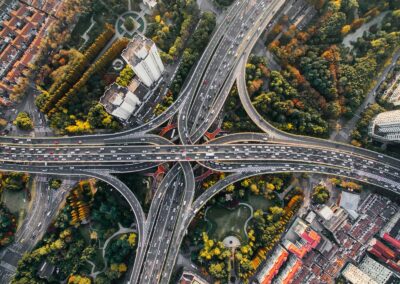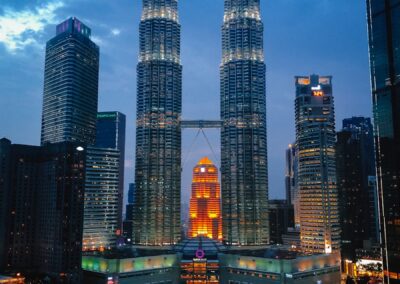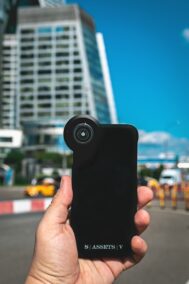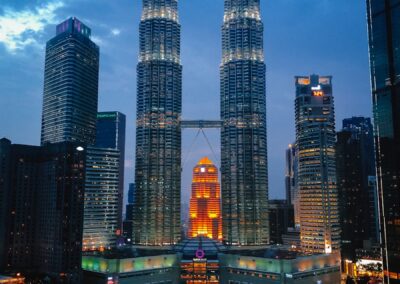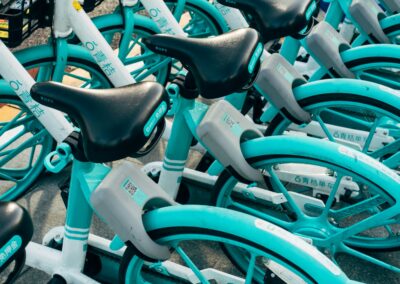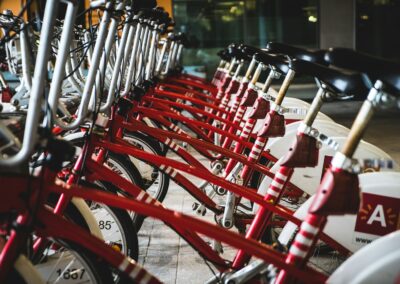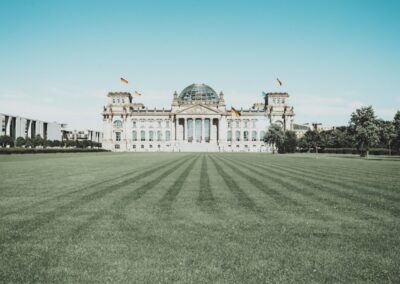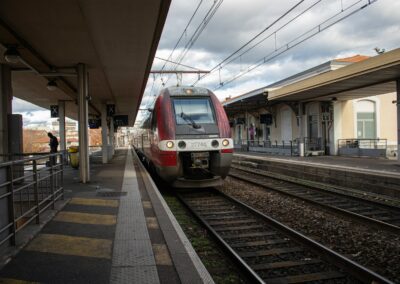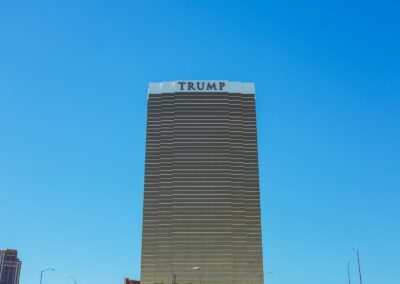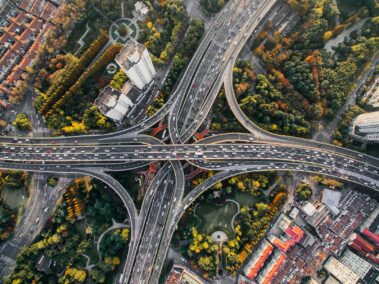Urban Planning and Zoning: Pillars of Sustainable Urban Design
Strategic Urban Planning in Saudi Arabia and UAE
Urban planning and zoning policies are crucial in shaping sustainable urban design, particularly in dynamic regions like Saudi Arabia and the UAE. These policies ensure that urban growth aligns with environmental, social, and economic sustainability goals, creating thriving, resilient cities. In Riyadh and Dubai, strategic urban planning is pivotal for balancing rapid development with the preservation of natural resources and the enhancement of quality of life.
Effective urban planning in Saudi Arabia focuses on creating integrated, multi-functional urban spaces that reduce environmental impact and promote social well-being. For instance, Riyadh’s Vision 2030 includes significant investments in green spaces, public transportation, and smart city infrastructure. These initiatives aim to reduce carbon emissions, enhance air quality, and provide residents with accessible, sustainable urban environments.
In the UAE, Dubai’s urban planning strategies emphasize the integration of cutting-edge technologies like artificial intelligence (AI) and blockchain to enhance city management and sustainability. Dubai’s Smart City initiative leverages AI to optimize energy consumption, manage traffic, and improve public services. Blockchain technology ensures transparency and efficiency in urban governance, supporting sustainable development goals. These efforts position Dubai as a leader in sustainable urban design, showcasing how strategic urban planning can drive innovation and sustainability.
The Importance of Zoning Policies in Sustainable Development
Zoning policies play a vital role in promoting sustainable urban design by regulating land use and ensuring that development aligns with long-term sustainability goals. In Saudi Arabia and the UAE, zoning policies are designed to balance urban growth with environmental conservation and social equity. These policies determine the location and density of residential, commercial, and industrial areas, influencing urban form and function.
In Riyadh, zoning policies support the development of mixed-use neighborhoods that reduce the need for long commutes and promote walkability. By encouraging higher-density development in urban centers, these policies help to preserve open spaces and reduce urban sprawl. This approach not only minimizes environmental impact but also enhances the vibrancy and livability of urban areas.
Dubai’s zoning policies emphasize the importance of green building standards and sustainable construction practices. The city’s regulatory framework encourages the use of renewable energy, energy-efficient building designs, and sustainable materials. These measures contribute to reducing the environmental footprint of urban development and promote the creation of eco-friendly urban spaces. By integrating sustainability into zoning policies, Dubai ensures that urban growth is aligned with environmental protection and resource efficiency.
Artificial Intelligence and Generative AI in Urban Design
The integration of artificial intelligence (AI) and generative AI technologies is revolutionizing urban planning and zoning, enabling more efficient and sustainable urban design. In Saudi Arabia and the UAE, these technologies are being utilized to analyze data, optimize resource allocation, and generate innovative design solutions. AI-driven urban planning tools help cities like Riyadh and Dubai to predict future trends, manage growth, and enhance sustainability.
Generative AI, a subset of AI, offers new possibilities for urban design by creating multiple design scenarios based on predefined parameters. This technology allows urban planners to explore various options and identify the most sustainable and efficient solutions. In Riyadh, generative AI is being used to design energy-efficient buildings and optimize urban layouts, contributing to the city’s sustainability goals.
Dubai’s use of AI in urban planning extends to smart transportation systems that reduce traffic congestion and lower carbon emissions. AI-powered analytics help to optimize public transportation routes, enhance traffic management, and improve overall mobility. These technologies not only enhance urban efficiency but also support Dubai’s vision of becoming a leading smart and sustainable city.
#SustainableUrbanDesign #UrbanPlanning #ZoningPolicies #SaudiArabia #UAE #Riyadh #Dubai #AI #Blockchain #Metaverse #GenerativeAI #ExecutiveCoaching #ChangeManagement #BusinessSuccess


